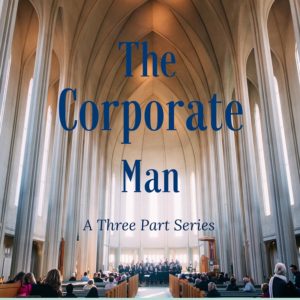The Book of James
The book of James is a compact, practical, “bullion cube” description of the Christian life. Almost every verse contains a nugget of revelation which could be expanded into a sermon of its own! Over the eight sermons in this series, Pastor Steve and various guest speakers unpack the riches of the book of James – clarifying, illustrating, and applying principles which underlay the born again life.
[toggle type=”gray” title=”Faith that Works is Faith that Works – Introduction” active=””]Patti Bowman kicks off the series with an introduction to the central theme of the book of James: The relationship between “faith” and “works”. Patti starts by discussing the nature of a living faith – practical,ethical, and relational. Patti goes on to describe the difference between works produced by legalistic fear, and works that are the responsibilities of those who accept the call to be a disciple of Christ.[/toggle]
[toggle type=”gray” title=”Refined as Gold – James 1:1-13″ active=””]James chapter 1 opens with the famous phrase, “Count it all joy when you encounter trials of every kind.” Abbie Hauptman explains the practical, ethical and relational sides of enduring suffering. Abbie starts by describing a “faithful” reaction to suffering. She then goes on to give a wealth of practical tips for how, not only endure suffering, but reap the greatest potential value from the trial.[/toggle]
[toggle type=”gray” title=”The Man in the Mirror – James 1:13-27″ active=””]Pastor Steve explains the meaning, implications, and applications of the action packed verses of James 1: 13-27. Temptation never comes from God. Sin results from our desire to use God’s good gifts to gratify our own personal pleasure. The Bible, our consciences, and wise friends, however, all help us to remember our “true” identity and live according to the “law of liberty” written on our hearts.[/toggle]
[toggle type=”gray” title=”Just Do It – James 2″ active=””]Pastor James identifies the main points of each section of James chapter 2, and challenges us to apply these Biblical principles to our modern, Christian lives: “Think new thoughts” concerning the people around us, and the needs present in our community. Make time to notice and address the needs of our neighbors. And do not let past failures discourage us from rising to the occasion in the present. What is God calling you to do? Do it![/toggle]
[toggle type=”gray” title=”Are You Tongue Tied? – James 3:1-12″ active=””]Patti Bowman teaches from James 3 about the relationship between the words that come out of our mouth, the condition of our hearts, and the process of sanctification. The words we speak reflect the condition of our hearts, as well as influence the direction of our development. We improve the condition of our heart by choosing to “feed” on the Word of God[/toggle]
[toggle type=”gray” title=”Heavenly Wisdom – James 3:13-18″ active=””]Pastor Steve compares and contrasts the two kinds of wisdom described in the second half of James chapter 3. Though no special talent or intelligence of our own, Christians are graced with access to God’ wisdom. If we live according to God’s wisdom, we further the kingdom of God. If we live according to worldly wisdom, we unleash evil into our lives. What is this heavenly wisdom? Listen and find out![/toggle]
[toggle type=”gray” title=”He Exalts the Humble – James 4:1-10″ active=””]Pastor Steve gets a running start by summarizing the main points of the earlier six sermons in this series. Before diving into chapter 4 of the Book of James, which contains some of the most challenging teachings in the book, Steve reminds us that New Testament teachings are not external requirements, but rather the true longings of the born-again heart. With this in mind, listen and learn about God’s longing to glorify His children, but only after pride and selfishness have been truly replaced by humility and love.[/toggle]
[toggle type=”gray” title=”Judgement Free Zone – James 4:10-17″ active=””]This sermon is about judgement – what it is, as well as why and how we should abstain from it. James 4:11 says, when we speak against a brother or sister, or judge them, we speak against and judge the law. What does this really mean? And how do we apply this to our lives? How do we extend the grace we hope to receive from God without condoning sin? Listen and find out![/toggle]





